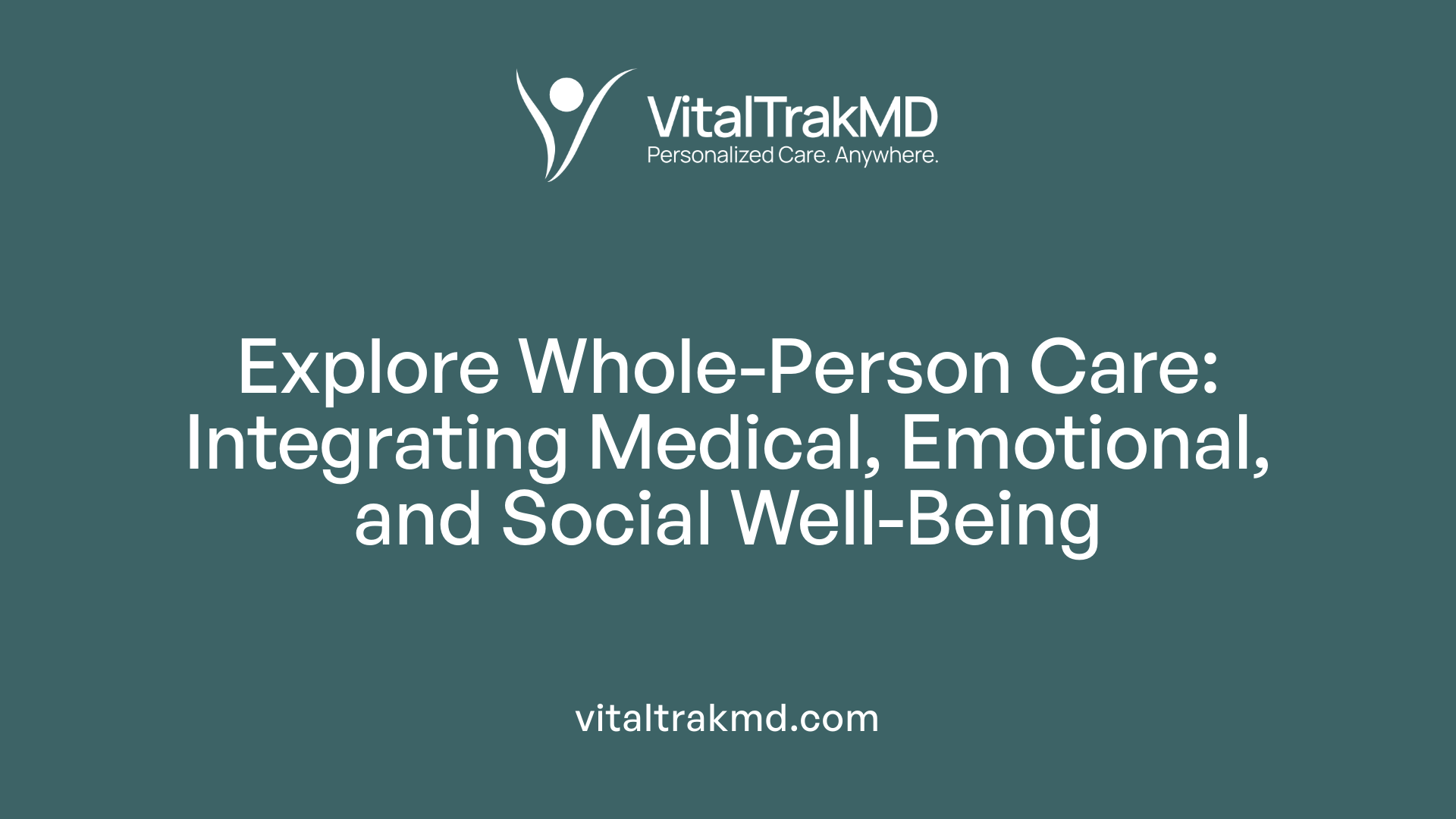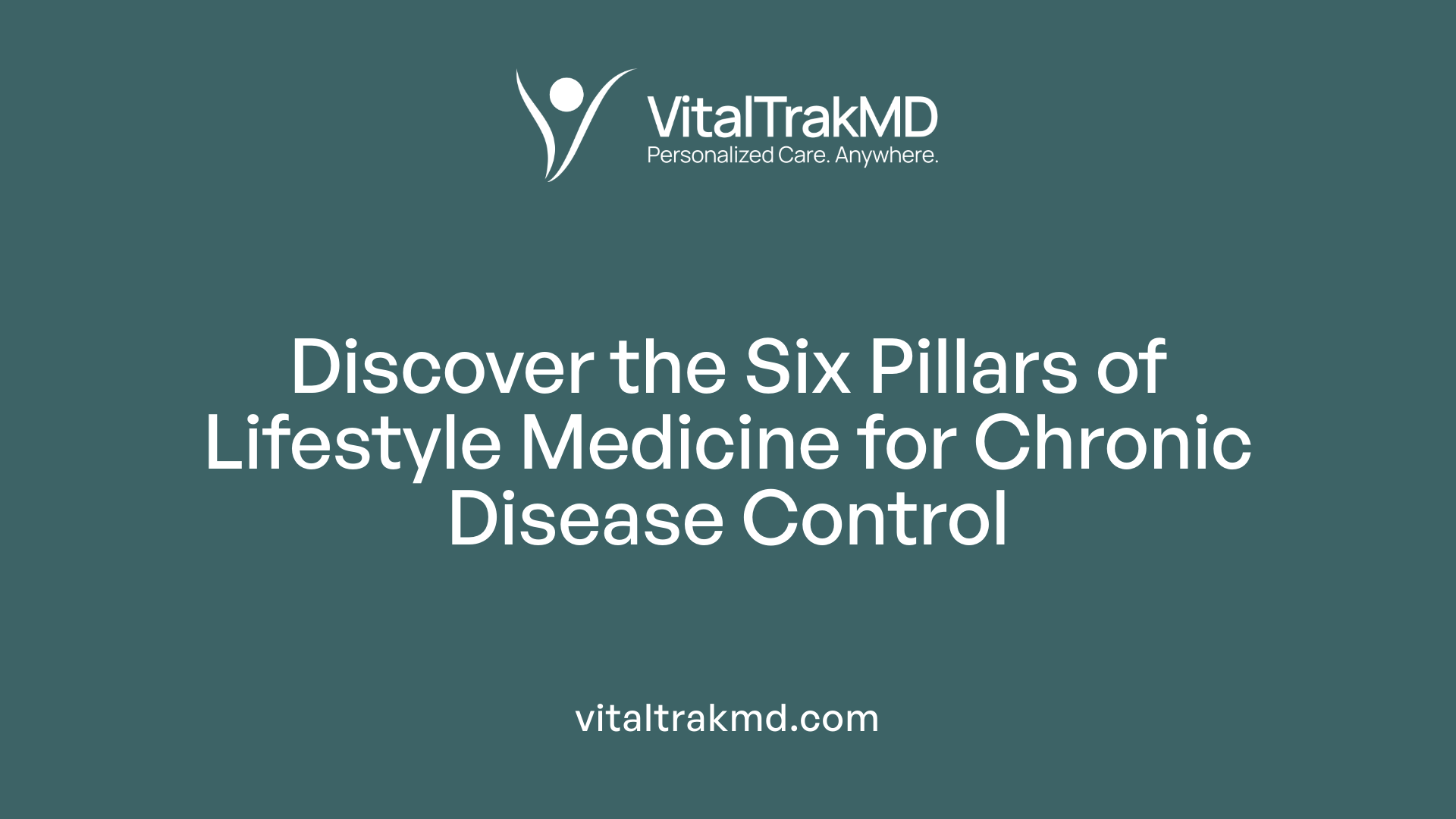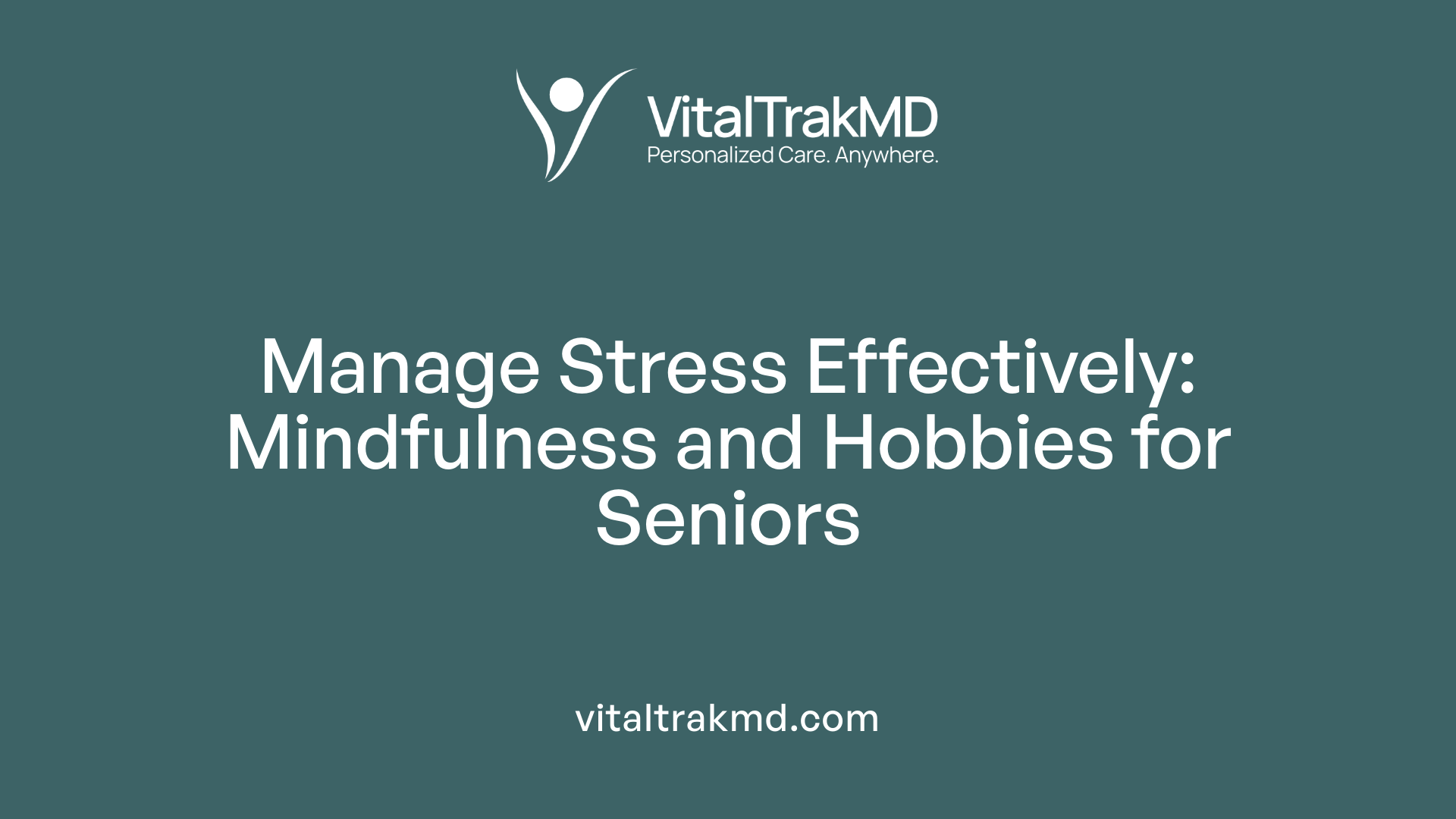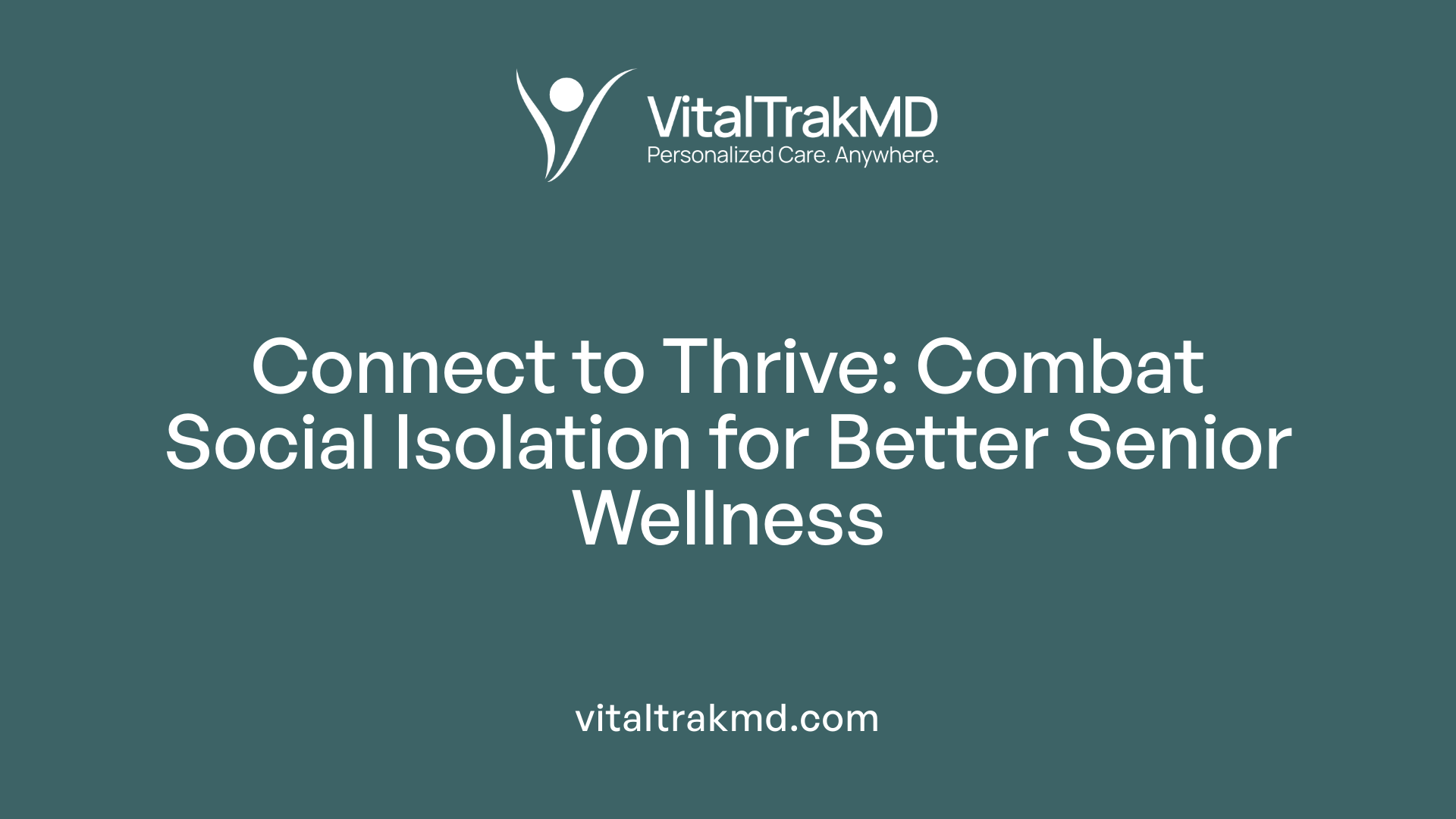How Hybrid Healthcare Supports Seniors With Ongoing Chronic Condition Management

Navigating the Complexities of Chronic Condition Management in Seniors
Managing chronic conditions in seniors requires more than medical interventions alone. Hybrid healthcare models, combining personalized clinical care with lifestyle medicine and social support, offer a comprehensive solution designed to improve health outcomes, enhance quality of life, and empower seniors in their wellness journey. This article explores the role of hybrid healthcare in supporting ongoing chronic disease management through whole-person care, evidence-based wellness programs, and community-based interventions.
Understanding Whole-Person Care in Senior Chronic Disease Management

What is whole-person care and its principles?
Whole-person care is a proactive, patient-centered approach that combines medical treatment with emotional and social support. It aims to address the diverse needs of seniors managing chronic conditions, including diabetes, heart disease, and hypertension. This care model emphasizes not only treating illness but also enhancing overall quality of life.
How does whole-person care integrate medical, emotional, and social well-being?
Medical care focuses on managing symptoms and medications. Emotional well-being is supported through stress management techniques and mental health resources, while social connections are encouraged to reduce isolation. Together, they create a comprehensive support system that promotes long-term health and resilience.
Why is this approach especially relevant for seniors with chronic conditions?
Seniors often face multiple health challenges simultaneously. Integrating medical treatment with lifestyle factors such as nutrition, physical activity, sleep, and social engagement helps slow disease progression and improves outcomes. Addressing social determinants of health, like access to community resources, further supports seniors’ ability to maintain independence.
What types of care programs support long-term wellness goals?
Long-term wellness is supported by comprehensive programs that combine clinical rehabilitation, strength and balance exercises, and chronic disease management. Examples include programs like C.L.I.M.B. and aquatic therapies (e.g., WAVES), which improve physical and cognitive function. Holistic strategies also cover nutrition counseling, environmental modifications, mental health support, and social engagement activities.
| Aspect | Focus Area | Description |
|---|---|---|
| Medical Care | Chronic condition management | Medication, symptom control, and clinical rehabilitation |
| Emotional Support | Stress management, mental health | Mindfulness, counseling, hobbies to reduce stress |
| Social Well-being | Community engagement, support | Group activities, social networks to combat isolation |
| Physical Activity | Tailored exercises for seniors | Chair yoga, water aerobics to enhance mobility and strength |
| Nutrition | Diet rich in whole, plant-based foods | Reduces inflammation and stabilizes blood sugar |
Lifestyle Medicine: A Cornerstone of Chronic Condition Management

What Are the Six Pillars of Lifestyle Medicine?
Lifestyle medicine emphasizes six foundational areas to promote health and assist seniors in managing chronic conditions such as diabetes, hypertension, and heart disease. These pillars include:
- A whole-food, plant-predominant diet rich in vegetables, fruits, whole grains, and lean proteins;
- Regular physical activity tailored to individual abilities, like chair yoga or water aerobics;
- Restorative sleep with consistent routines and addressing sleep disorders;
- Stress management through mindfulness practices, hobbies, and social engagement;
- Avoidance of risky substances such as tobacco and excess alcohol;
- Fostering positive social connections to combat isolation.
How Do Lifestyle Changes Impact Chronic Diseases?
Adopting these pillars helps reduce inflammation, stabilize blood sugar, enhance cardiovascular health, and strengthen mobility. For example, nutrient-dense diets lower the risk factors for diabetes and heart disease, while physical exercises improve heart function and manage hypertension.
How Can Lifestyle Changes Support Chronic Condition Reversal?
Lifestyle medicine not only manages but can help reverse conditions by addressing root causes through behavior. Regular exercise and a plant-based diet contribute to weight loss, improved insulin sensitivity, and reduced blood pressure.
How Can Weight Loss Be Sustainably Achieved Through Lifestyle Changes?
Sustainable weight loss comes from long-term adoption of healthy eating patterns like the Mediterranean diet, rich in fruits, vegetables, and healthy fats, and reducing saturated fats, sugar, and salt. Combining this with 150 minutes of moderate physical activity weekly helps maintain muscle mass and heart health. Setting achievable goals, such as losing 10% of body weight, fosters motivation and long-lasting changes.
These comprehensive lifestyle modifications form the foundation of whole-person care models, like those advocated by ChenMed, supporting seniors in improving chronic disease outcomes and overall quality of life.
Nutrition Strategies to Reduce Chronic Disease Risks

What does a whole-food, plant-predominant diet mean for seniors?
A whole-food, plant-predominant diet focuses on eating foods that are minimally processed and largely derived from plants. This includes an abundance of vegetables, fruits, whole grains, nuts, and legumes, which provide essential nutrients and fiber beneficial for overall health.
How do nutrient-dense foods help manage chronic conditions?
For seniors managing chronic diseases like diabetes, heart disease, and hypertension, nutrient-dense foods play a vital role. Vegetables and fruits contain antioxidants and phytochemicals that reduce inflammation, a common factor in chronic illnesses. Whole grains and lean proteins help stabilize blood sugar levels and support cardiovascular health.
What specific dietary recommendations are suggested for seniors?
Seniors are encouraged to consume a variety of vegetables and fruits daily, favor whole grains over refined grains, and include lean protein sources such as fish, poultry, or plant-based proteins. Limiting processed foods, added sugars, and excessive salt intake supports better management of chronic conditions. Incorporating these dietary habits into a personalized whole-person care plan can enhance both physical and emotional well-being.
Applying these nutrition strategies within holistic care frameworks empowers seniors to improve health outcomes and maintain independence in managing their chronic diseases.
Physical Activity Tailored for Older Adults

What types of physical activities are suitable for seniors?
Physical activities for seniors should be adaptable to various ability levels and focus on enhancing overall function. Examples include chair yoga, which offers gentle stretching and balance improvement while seated, and water aerobics, which leverage water's buoyancy for low-impact cardiovascular and strength training.
How do these activities benefit mobility, strength, and cardiovascular health?
Regular physical activity supports seniors' mobility by maintaining joint flexibility and muscle strength. It also enhances cardiovascular health by improving heart and lung function, which contributes to better endurance and energy levels.
Examples like chair yoga and water aerobics
Chair yoga is ideal for seniors with limited mobility or balance challenges, providing a safe way to increase flexibility and reduce pain. Water aerobics reduce strain on joints, making it especially beneficial for those with arthritis or chronic joint pain while boosting cardiovascular fitness.
What are the most effective wellness programs for overall health improvement?
Effective wellness programs utilize a comprehensive approach, integrating physical activity, diet, stress management, and preventive care. Programs tailored to older adults, such as those incorporating physical exercises like chair yoga and water aerobics alongside nutritional counseling and social support, demonstrate the most positive health outcomes.
By focusing on senior-friendly physical activities, these programs promote sustained engagement, improved quality of life, and better chronic disease management.
The Integral Role of Restorative Sleep in Managing Chronic Illness

Why Is Maintaining a Consistent Sleep Routine Important for Seniors?
Consistent sleep routines are vital for seniors managing chronic illnesses because regular sleep patterns help regulate the body's internal clock, improve memory, and support immune function. Establishing a predictable bedtime and wake-up time can enhance the quality of sleep, which is often disrupted in older adults.
How Can Addressing Sleep Disorders Improve Health Outcomes?
Identifying and treating sleep disorders such as insomnia, sleep apnea, or restless leg syndrome is essential. Referrals to sleep specialists or healthcare providers can lead to interventions tailored to individual needs. Proper management of these disorders contributes to better control of chronic conditions such as diabetes and heart disease.
What Is the Impact of Restorative Sleep on Energy Levels and Chronic Disease Management?
Restorative sleep rejuvenates the body, increasing energy levels and improving mood and cognitive function. For seniors with chronic illnesses, better sleep supports medication effectiveness, reduces inflammation, and helps stabilize blood sugar and blood pressure. This holistic benefit enhances overall health outcomes and quality of life.
Recommendations for Seniors
- Establish a calming pre-sleep routine
- Keep sleep environments cool, dark, and quiet
- Limit caffeine and heavy meals before bedtime
- Seek medical advice if experiencing persistent sleep problems
Restorative sleep is an integral component of lifestyle medicine, complementing other pillars such as physical activity and stress management. Together, these strategies form a comprehensive approach to chronic illness care in seniors that addresses both medical and emotional well-being.
Stress Management Techniques Beneficial to Seniors

How Can Mindfulness and Hobbies Help Seniors Manage Stress?
Mindfulness practices, such as meditation and deep-breathing exercises, offer seniors effective tools to calm the mind and reduce anxiety. Engaging regularly in hobbies like gardening, painting, or playing musical instruments provides not only enjoyment but also a healthy distraction from daily worries. These activities stimulate mental focus and encourage relaxation, which can help lower stress levels significantly.
What Role Do Social Activities Play in Reducing Stress for Seniors?
Social activities are crucial in combating stress and promoting emotional well-being among seniors. Participating in community groups, support groups, or group exercise classes fosters a sense of belonging and connection. These interactions provide emotional support and reduce feelings of isolation, which is especially important since social isolation can adversely affect seniors’ health and worsen chronic conditions.
How Does Stress Impact Chronic Conditions in Older Adults?
Chronic stress can exacerbate health problems common in seniors, such as diabetes, hypertension, and heart disease. It triggers harmful physiological responses, increasing inflammation and blood pressure, and can impair blood sugar control. By managing stress effectively through mindfulness, hobbies, and maintaining social connections, seniors can better control their chronic conditions and improve overall health outcomes.
Reducing Risky Substances to Enhance Senior Health

What is the impact of tobacco and alcohol on chronic disease in seniors?
Tobacco use and excessive alcohol consumption significantly worsen chronic conditions that many seniors face, like diabetes, heart disease, and hypertension. Smoking contributes to inflammation, arterial damage, and worsened cardiovascular health. Alcohol can destabilize blood sugar levels and interfere with medications, adding challenges to managing health effectively.
What are the benefits of cessation?
Quitting smoking and reducing alcohol intake can lead to notable improvements in overall health. Seniors often experience better cardiovascular function, decreased inflammation, and improved medication effectiveness after cessation. This leads to better management of chronic illnesses and enhanced quality of life.
How is substance reduction integrated into whole-person care plans?
Responsible care models for seniors incorporate reducing risky substances as a core part of lifestyle medicine. Personalized care plans emphasize counseling, education, and support for cessation. Care teams work closely with seniors to address addiction challenges and provide resources that encourage healthier choices, ultimately improving medical, emotional, and social well-being.
Reducing tobacco and alcohol intake is a vital step in holistic senior care, contributing meaningfully to chronic disease management and overall wellness.
Combating Social Isolation to Improve Wellness Outcomes

What Are the Negative Health Effects of Isolation?
Social isolation can have serious repercussions on seniors’ health, particularly for those managing chronic conditions like diabetes or heart disease. It has been linked to increased risks of depression, cognitive decline, and even higher mortality rates. Without regular social interaction, stress levels can rise, and motivation to maintain healthy behaviors often drops, compounding the challenges of chronic disease management.
Why Are Social Connections Important?
Maintaining positive social connections provides emotional support, reduces stress, and encourages healthier lifestyle choices. Emotional well-being is closely tied to physical health, especially for seniors managing multiple chronic conditions. Social engagement can improve mood, strengthen immune function, and enhance adherence to treatment plans.
How Do Community Activities and Support Groups Help?
Community activities and support groups create structured opportunities for seniors to connect and share experiences. Programs tailored for older adults, such as walking clubs or chronic disease self-management groups, foster a sense of belonging and mutual encouragement. These gatherings not only reduce feelings of loneliness but also provide education and resources important for managing health.
By integrating these social strategies with whole-person care approaches, seniors receive a comprehensive support system that addresses both medical and emotional needs, leading to better health outcomes and improved quality of life.
Personalized Care Plans by ChenMed: A Model for Hybrid Healthcare
How does ChenMed develop individualized care plans?
ChenMed specializes in creating personalized care plans that address the unique needs of seniors managing chronic conditions such as diabetes, heart disease, and hypertension. These plans integrate medical treatment with attention to emotional and social well-being, aligning with the whole-person care approach. By thoroughly assessing patients’ health status and personal circumstances, ChenMed tailors interventions to optimize health outcomes and quality of life.
What kind of ongoing support does ChenMed provide to seniors?
Ongoing support is a cornerstone of ChenMed's model. They maintain close communication with patients, offering regular follow-ups and adapting care plans as needed. This continuous engagement helps manage chronic illnesses proactively, reduces hospitalizations, and supports medication adherence. Patients also benefit from education around lifestyle changes, including nutrition, physical activity, and stress management, ensuring a comprehensive health approach.
How does ChenMed address social determinants of health?
Recognizing that factors like social isolation, access to transportation, and financial challenges significantly impact health, ChenMed incorporates solutions addressing these social determinants. Their care teams connect patients to community resources, facilitate social support, and work to eliminate barriers to care. This holistic view ensures that non-medical factors influencing health are managed alongside clinical treatment, fostering better long-term outcomes for seniors.
Evidence-Based Chronic Disease Self-Management Education (CDSME) Programs
What is the structure and delivery method of CDSME programs?
Chronic Disease Self-Management Education (CDSME) programs are carefully designed to provide structured, evidence-based support for older adults managing chronic conditions. These programs typically include scripted content delivered by trained facilitators to maintain consistency and effectiveness. Delivery modes vary from community-based group sessions to remote or hybrid approaches, increasingly supported by proprietary software like WellWare, which helps in assessment and personalized health action planning.
Why is fidelity and training critical in CDSME?
Maintaining fidelity—strict adherence to the program's design and delivery protocols—is essential for CDSME success. Fidelity ensures that participants receive a standardized, high-quality experience that reflects the original evidence base. Comprehensive training and required retraining for facilitators support this fidelity, ensuring that program implementation matches proven methods and yields reliable health outcomes for participants.
What outcomes have these programs demonstrated for older adults?
CDSME programs have been shown to improve health management skills, reduce symptoms of chronic disease, and enhance overall quality of life for seniors. They empower participants to better manage conditions such as arthritis, diabetes, and hypertension. Furthermore, implementing these programs benefits organizations by lowering healthcare costs, reducing absenteeism, and increasing productivity and morale, making them a win-win for individuals and communities alike.
Technology in Program Management: The WellWare System and Enhance®Wellness
How does cloud-based software aid data and assessment management in senior wellness programs?
Cloud-based software like WellWare plays a crucial role in managing wellness programs tailored for seniors. It securely stores participants' health data and manages assessments, making information readily accessible for healthcare providers and program facilitators. This centralized data system helps streamline monitoring and evaluation processes, ensuring personalized care plans are up-to-date and relevant.
In what ways does WellWare support program fidelity?
Maintaining fidelity—the faithful and consistent delivery of program content—is essential to achieving beneficial outcomes. The WellWare system supports fidelity by providing structured tools that guide facilitators in following standardized protocols. It tracks adherence to program guidelines and helps identify areas needing improvement, ensuring the intended program quality is sustained across different sites and sessions.
How does WellWare assist in tracking health action plans?
WellWare facilitates ongoing management of health action plans by enabling real-time updates and progress tracking. Participants' goals and activities are documented in the system, which allows health coaches and providers to monitor achievements and challenges efficiently. This continuous feedback loop promotes timely interventions and adjustments, enhancing the overall effectiveness of chronic disease management for seniors.
Strength and Balance Focus: The Geri-Fit Strength Training Workout
What are the program features and setup of Geri-Fit?
Geri-Fit is a strength training workout designed specifically for older adults to enhance physical function, mobility, and balance. It is well-suited for use in senior centers, community settings, and other venues serving seniors. The program uses equipment appropriate for seniors and emphasizes exercises tailored for their specific needs. The classes are structured to maintain consistency and effectiveness.
How are instructors trained and what is the ideal class size?
Instructors for Geri-Fit receive training either online or in-person, ensuring they are well-prepared to guide seniors safely through exercises. Training covers program content, proper exercise techniques, and adaptations for varying ability levels. Classes are carefully sized to maintain a balance between individualized attention and group engagement, optimizing participant safety and motivation.
What are the benefits of Geri-Fit for physical function?
Geri-Fit helps improve strength, balance, and overall mobility in older adults, reducing risks of falls and enhancing independence. The exercise routine supports cardiovascular health and muscle endurance, which are vital for managing chronic conditions and maintaining quality of life. Participants often experience better functional capacity and confidence in daily activities.
Specialized Programs: Health Coaches for Hypertension Control
Target Population and Session Structure
The Health Coaches for Hypertension Control program is designed specifically for individuals aged 45 and older who have been diagnosed with hypertension or are concerned about managing their blood pressure. This targeted approach ensures that participants receive education and support tailored to their unique needs related to high blood pressure.
The program consists of structured sessions led by trained health coaches who follow a detailed script. This organized format helps maintain consistency and ensures that all essential information is properly conveyed. The sessions provide practical guidance on lifestyle changes, medication adherence, and self-monitoring techniques to empower participants.
Materials Used Like Blood Pressure Monitors
An important component of the program is the use of blood pressure monitors provided to participants. These devices allow individuals to track their blood pressure regularly at home, offering immediate feedback and increasing awareness of how lifestyle choices influence their condition.
Additional materials include educational handouts that cover nutrition, exercise, stress management, and medication management. Together, these resources support the participants in gaining the skills needed to take control of their hypertension effectively.
Role in Managing Hypertension
This health coaching initiative plays a critical role in managing hypertension among older adults by combining education, self-monitoring, and personalized support. Through consistent interaction with health coaches, participants develop confidence in managing their condition, improving medication adherence and lifestyle habits.
Moreover, the program emphasizes proactive self-care, which can lead to better blood pressure control, reduced risk of cardiovascular complications, and enhanced overall quality of life for seniors. By focusing on empowerment and continuous support, the Health Coaches for Hypertension Control program serves as a valuable resource in the comprehensive care of hypertension in older adults.
Addressing Urinary Health with Mind Over Matter Program
What is the focus of the Mind Over Matter program?
The Mind Over Matter: Healthy Bowels Healthy Bladder program specifically targets urinary health concerns among seniors. It is designed to educate and empower older adults to better manage bladder and bowel health issues.
How are facilitators trained for the program?
The program is led by trained facilitators who receive structured preparation to effectively guide participants through the curriculum. This training ensures facilitators are equipped to deliver content accurately and engage participants.
What are the licensing and renewal requirements?
Organizations implementing Mind Over Matter must obtain licensing which includes fees. Facilitators and program leaders must undergo structured training and periodic renewal to maintain the certification necessary for program delivery. This process ensures ongoing adherence to program standards and quality outcomes for participants.
Promoting Physical Activity with Walk With Ease and Active Living Every Day
What are the program characteristics and evidence-base of Walk With Ease and Active Living Every Day?
Both Walk With Ease and Active Living Every Day are evidence-based physical activity programs designed to support seniors in maintaining active lifestyles. These programs come with specific participant materials tailored to encourage consistent engagement and gradual improvement in mobility and fitness. Their effectiveness is supported by research demonstrating positive health outcomes such as reduced arthritis symptoms and improved cardiovascular health, making them reliable choices for senior wellness promotion.
Who are the target populations for these programs?
These programs specifically cater to older adults, including those living with conditions like arthritis, chronic pain, or diabetes. The focus is on seniors who may benefit from increased physical activity but require structured and supportive formats to engage safely and effectively in exercise routines.
How are delivery and fidelity monitoring ensured?
Delivery of these programs is typically community-based, conducted in accessible venues where seniors can participate comfortably. Program leaders and organizations receive training to maintain fidelity, ensuring that interventions are delivered as intended. Continuous monitoring helps uphold quality standards, enabling the programs to consistently produce their intended health benefits for participants.
Maintaining Program Efficacy Through Certification and Retraining: SMRC Programs
What are the certification and retraining processes for SMRC programs?
SMRC programs, which include chronic disease and HIV self-management education, follow a rigorous certification process to ensure program quality. Facilitators must undergo structured training and obtain certification before leading sessions. To maintain certification, leaders participate in active annual or biennial retraining programs designed to refresh their skills and update them on program changes.
How are fidelity checks implemented?
Fidelity checks are essential components of SMRC program delivery. These checks verify that facilitators strictly adhere to program guidelines, ensuring consistency and effectiveness. Monitoring may include direct observation, review of session materials, and participant feedback to confirm that the program is being delivered as scripted.
How do scripts and community-based delivery contribute to program success?
SMRC programs utilize detailed scripts that facilitators follow during sessions, promoting uniformity across different leaders and locations. These community-based delivery models allow programs to be accessible in local settings such as senior centers and community halls, increasing participant engagement and fostering peer support.
Below is a summary outlining SMRC program maintenance and delivery elements:
| Element | Description | Impact on Program |
|---|---|---|
| Certification & Retraining | Initial structured training with annual/biennial refreshers | Maintains facilitator competence and program integrity |
| Fidelity Checks | Regular monitoring of adherence to program content and scripts | Ensures consistency and maximizes participant benefits |
| Scripts | Detailed facilitator guides | Standardizes delivery and reduces variability |
| Community-Based Delivery | Sessions held within accessible local community settings | Enhances participant access and fosters localized support networks |
Integrating Hybrid Healthcare for Sustainable Senior Wellness
Hybrid healthcare, combining personalized medical care, lifestyle medicine, and evidence-based wellness programs, holds promise for transforming chronic condition management in seniors. By addressing the complex interplay of physical, emotional, and social factors, these integrated models not only manage diseases but also enhance quality of life and independence. Supporting seniors with tailored programs, technological tools, and community engagement facilitates sustainable health improvements and empowers this growing population to thrive despite chronic challenges.
References
- Managing Chronic Conditions with Whole-Person Care
- Use NCOA's CDSME Evidence-Based Programs Fidelity Hub
- CDC Workplace Health Model
- 5 steps to sustainable weight loss
- Weight loss - a healthy approach
- National Award Winning Wellness Programs
- Long-term Services & Support
- The Positive Impact of Wellness Programs in Assisted ...
- How to Encourage Wellness & Fitness in Senior Living ...
Recent articles
Want to Feel Better and Live Healthier?
Join hundreds of patients taking control of their health with personalized care that fits their life – not the other way around.
Rated 4.8/5 by 32+ customers







